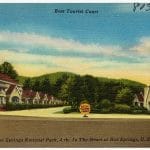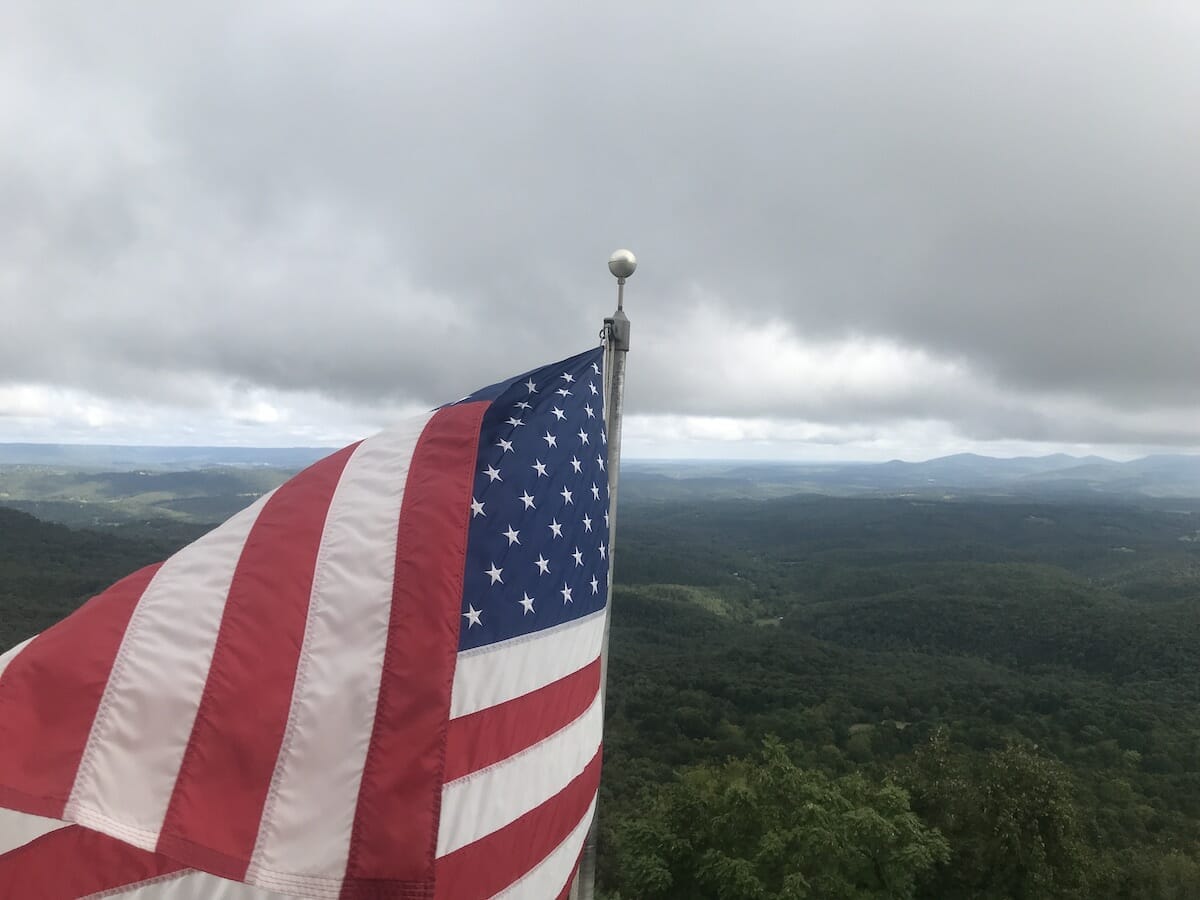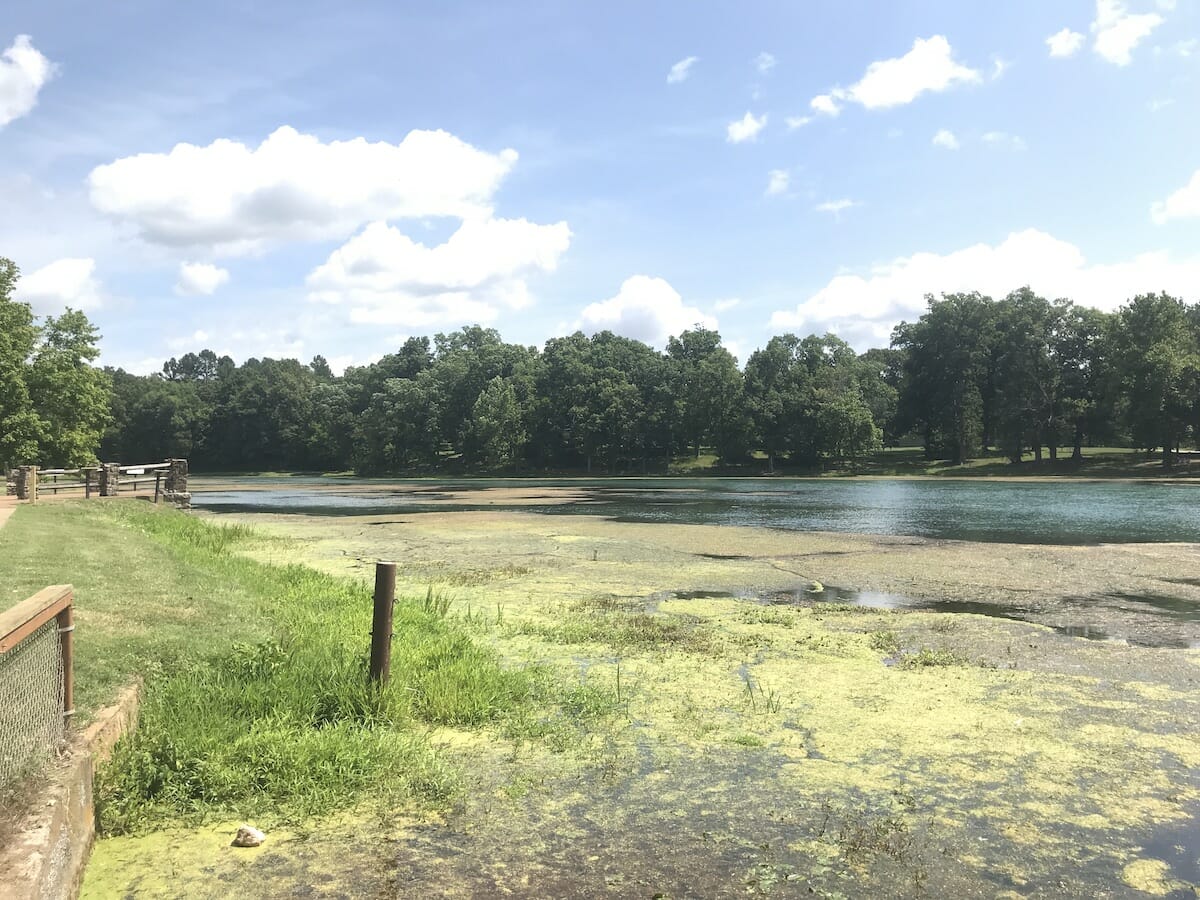

Uh oh...
It appears that you're using a severely outdated version of Safari on Windows. Many features won't work correctly, and functionality can't be guaranteed. Please try viewing this website in Edge, Mozilla, Chrome, or another modern browser. Sorry for any inconvenience this may have caused!
Read More about this safari issue.

Deer and duck seasons are in full swing, and thousands of Arkansans are heading outdoors in hopes of bagging a big one. Unfortunately, some hunters and fishers are leaving behind a mess. From soda bottles and snack wrappers to fishing line and shell casings, even small messes add up to big impact. Whether participating in recreation on your own land, a friend’s land or public land, it is important to leave as little trace of your presence as possible, the belief behind the “Leave No Trace” campaign in Arkansas.
I recently toured the Cache River National Wildlife Refuge with several Fish and Wildlife Service employees. As we boated through Bayou de View, I couldn’t help but notice a fair bit of trash in certain areas. The service employees mentioned struggles with hunters and fishers leaving trash when they pack up to go home and that groups like Arkansas Watertrails Partnership and Friends of the Cache River National Wildlife Refuge have to host regular cleanup events to help combat the problem. We all agreed that education is key and that while they appreciate the cleanup efforts, the problem can be solved by individual hunters and fishers.

What is “Leave No Trace” and Why is it Important?
In order for outdoor enthusiasts to continue enjoying nature, we must protect and conserve what we have. “Leave No Trace” is a set of seven principles that remind all of us to leave a minimal impact on the areas we visit. The seven principles include planning and preparing ahead, traveling and camping on durable surfaces, disposing of waste properly, leaving what is found, minimizing campfire impacts, respecting wildlife, and being considerate of other visitors.
None of the concepts involve difficult tasks, yet they can help protect wildlife and the environment. If we regularly follow the principles, we can protect animals, prevent forest fires and erosion, prevent pollution, and keep areas in good shape for the enjoyment of future generations.

Seven Tips to “Leave No Trace” for Hunters and Fishers
1. Plan Ahead and Prepare
- Know and follow hunting/fishing regulations. Regulations are set after research and are selected based on what will benefit the species. Overhunting can be detrimental; it’s crucial to follow bag and possession limits.
- Only hunt and fish in allowable areas. Get permission from landowners and follow public land regulations. When fishing, obey catch and release policies.
2. Travel and Camp on Durable Surfaces
- Obey road closures and drive on solid surfaces to minimize the impact of tires on the land.
- Good campsites are found, not made. Always camp in designated areas or search for a suitable site. Never remove trees or brush or otherwise alter the site before setting up camp.
- Do not cut branches or other obstacles to reach a fishing hole.

3. Dispose of Waste Properly
- Follow standard procedures for burying human waste or pack it out with you. If you must fill a soda bottle with urine, don’t leave it in the woods.
- When you no longer need to use a deer stand, remove it from the woods.
- Pack out dog waste.
- Carry a trash bag and pack out all of your food wrappers, bait cups, shell casings, monofilament fishing line and sinkers.
- Move gut piles off the main trail and away from waterways. Gut piles attract bears, flies and other animals. As piles decompose, they contaminate clean water sources.

4. Leave What Is Found
- Create blinds out of manmade materials rather than out of native plants or other vegetation.
- Don’t target practice on trees, rocks or non-game animals.
5. Minimize Campfire Impact
- Don’t Move Firewood
- Keep fires small and establish a ring to prevent spread.
- Don’t burn trash.

6. Respect Wildlife
- Follow all hunting and fishing regulations and only hunt in-season.
- Follow Arkansas Game and Fish Commission guidelines for bait.
- Don’t use bait in chronic wasting disease zones.
- Take clean, killing shots. Do not waste the animals you kill.
7. Be Considerate of Other Visitors
- Be cautious and courteous of others in the woods and on the trail.
- Be aware of the “field of fire.”
- If you see trash that is not yours, pick it up.

As you head out into the woods this fall and winter, enjoy your hunting and fishing trips. When you leave the woods behind, glance over your shoulder and make sure you’ve left everything in great condition. Even better, leave the woods in better shape than it was when you arrived. Help protect The Natural State, so her forests, rivers and lakes are there for generations to come by pledging to “leave no trace” of your presence.
For more information on Leave No Trace visit the Leave No Trace Center for Outdoor Ethics
Join the Conversation
Leave a Comment
3 responses to “Asking Hunters and Fishers to Leave No Trace”
 Leave a Reply
Leave a Reply
We do the work.
You check your email.
Sign up for our weekly e-news.
Get stories sent straight to your inbox!









 Leave a Reply
Leave a Reply
[…] to maybe even bring home a meal of game or fish. Many who participate in these activities practice “Leave No Trace” and take measures to make sure they aren’t doing anything that may harm […]
[…] Practice the principles of Leave No Trace. […]
[…] the outdoors regularly visiting parks and trails across Arkansas, I am aware of the principles of Leave No Trace and Responsible Recreation. Recently, as more people are participating in outdoor activities, a […]